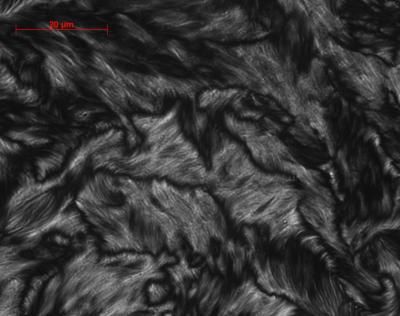Agilent Technologies to present novel methods for sensing nanoscale binding events with atomic force microscope
Advertisement
Agilent Technologies Inc. announced that Dr. W. Travis Johnson, Life Sciences Applications manager, will present a paper on innovative techniques for using scanning probe microscopes (SPMs) and atomic force microscopes (AFMs) in the study of biological phenomena. Johnson will discuss TREC - Topography and RECognition - a powerful, SPM/AFM imaging mode that combines molecular-scale imaging with the sensitivity of a piconewton-scale single molecule biosensor.
The study of nanoscale binding events offers scientists the ability to look at primary events in a variety of biological phenomena, from DNA replication and RNA transcription to immune response, tissue growth, cellular differentiation, and the action of drugs, hormones and toxic substances. TREC combines simultaneous, real-time detection of molecular recognition events and single-molecule sensitivity with the imaging capability of the AFM. Commercially available, Agilent's PicoTREC is a tool for the life sciences, biophysics, materials and polymer sciences, nanotechnology, and any field where it is useful to study molecular interactions in real time. It can be used to image and map binding sites, study biological processes, and probe nanometer-scale areas on a variety of surfaces.
"The ability to view and understand events as they occur at the molecular level will increase our understanding of how systems work and lead to new discoveries in many fields, including life sciences, material sciences and nanotechnology," said Bob Burns, vice president of the Nanotechnology Measurements Division at Agilent. "New developments in these fields are dependent to a large extent on an improved understanding of how discrete molecular structures interact in molecular binding events. With PicoTREC, we can already anticipate advances in pharmacology, polymers and other materials sciences, as well as immunology and bio-compatibility."
Other news from the department research and development

Get the chemical industry in your inbox
By submitting this form you agree that LUMITOS AG will send you the newsletter(s) selected above by email. Your data will not be passed on to third parties. Your data will be stored and processed in accordance with our data protection regulations. LUMITOS may contact you by email for the purpose of advertising or market and opinion surveys. You can revoke your consent at any time without giving reasons to LUMITOS AG, Ernst-Augustin-Str. 2, 12489 Berlin, Germany or by e-mail at revoke@lumitos.com with effect for the future. In addition, each email contains a link to unsubscribe from the corresponding newsletter.























































